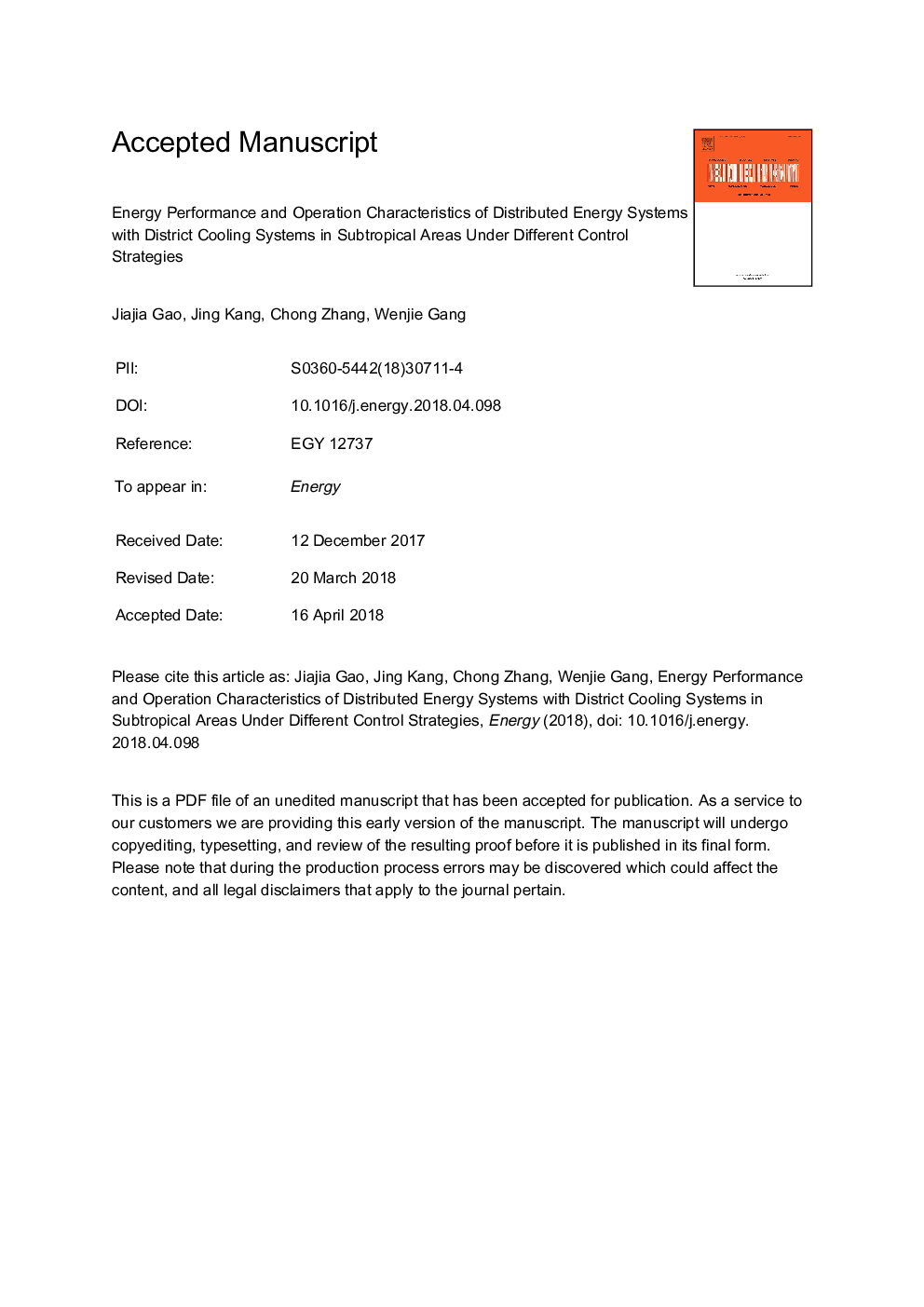| Article ID | Journal | Published Year | Pages | File Type |
|---|---|---|---|---|
| 8071610 | Energy | 2018 | 35 Pages |
Abstract
Distributed energy systems have been attracting increasing attention due to high efficiency and environmental friendliness. In subtropical and high density urban areas, district cooling system is regarded as an efficient alternative for cooling and dehumidification. Distributed energy systems integrated with district cooling systems (DES&DCSs) are supposed to be efficient energy supply options. However, the energy performance of such integrated systems is not sufficiently studied yet. To provide energy planning suggestions in these areas, this paper aims to investigate the energy performance of DES&DCSs under different control methods in detail. Annual hourly measurements of cooling and electricity loads of a campus are used. The energy performance of the DES&DCS is evaluated and compared with DCS and individual cooling systems which totally depend on the grid. The operation characteristics of the DES&DCS under four control strategies are analysed, as well as the impacts on the grid. Results show that the DES&DCS can be energy efficient in subtropical and high density areas. The energy saving is more than 10% and can be up to 19%. The control strategy following the cooling or electricity demand requiring more primary energy is recommended due to higher energy saving and more beneficial to the grid.
Keywords
Related Topics
Physical Sciences and Engineering
Energy
Energy (General)
Authors
Jiajia Gao, Jing Kang, Chong Zhang, Wenjie Gang,
